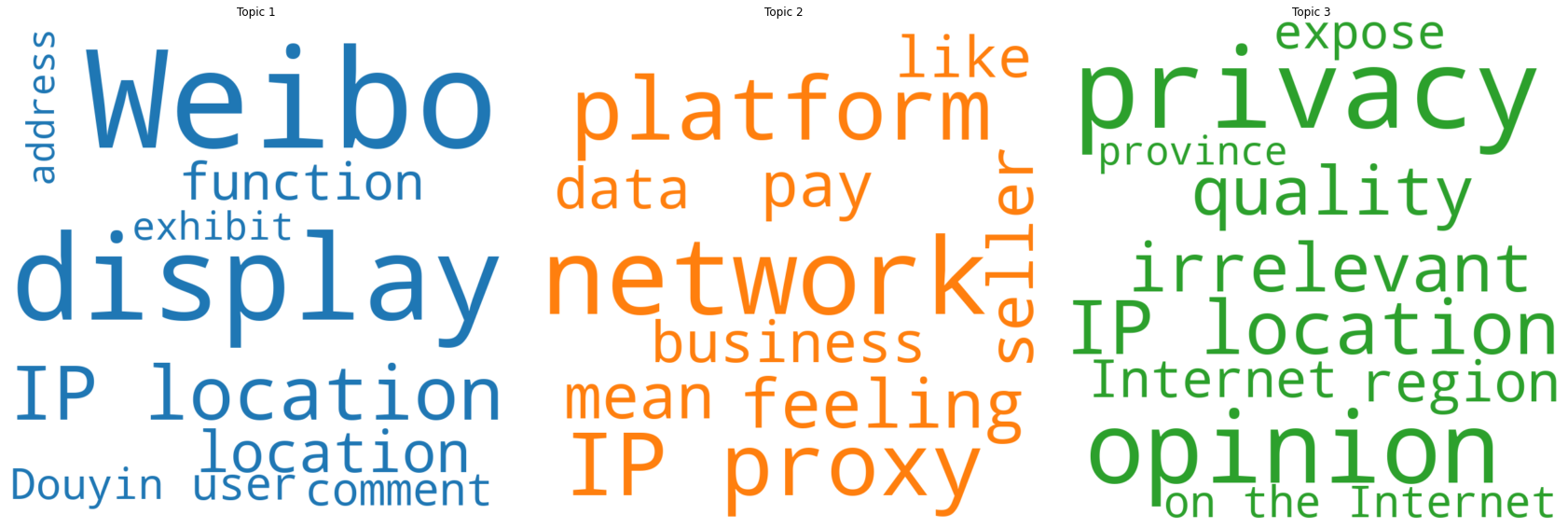Geoprivacy Attitudes on Chinese Social Media
Status: Under Review
Keywords: public opinion, IP location, anti-disinformation, data privacy, China, computer-assisted text analysis
Background: In April of 2022, one of the largest Chinese social media platforms, Weibo, implemented a new feature that automatically adds a user’s location to all microblog posts and comments. Released as a means to combat disinformation, a user’s location is identified based on their device’s internet protocol (IP) address. Almost immediately, a heated debate over the implementation of this feature and user privacy took place on the platform.
Methods: In this work, we analyze users’ reactions and discuss the effectiveness of this implementation. A total of 59,051 microblogs and 113,175 comments about IP location disclosure were collected from March to May 2022 on Weibo.com. Spatial and temporal patterns in the data were identified. Deep reading was then guided by the output of a Latent Dirichlet Allocation (LDA) topic model to extract implicit topics from the discourse.
Findings: Results indicate that both supporters and opponents of the mandatory location disclosure participated in the discussion, with females more involved than males. Location privacy concerns were also interpreted through the lens of related literature and the online discourse.

Significance: The ambivalent attitudes of some users revealed the unique landscape of data privacy concerns in the communitarian state. The findings of this study will aid policymakers in understanding public opinions about mandatory location disclosure and help developers implement privacy-aware designs in the context of contemporary China.
Authors: Hongyu Zhang and Grant McKenzie